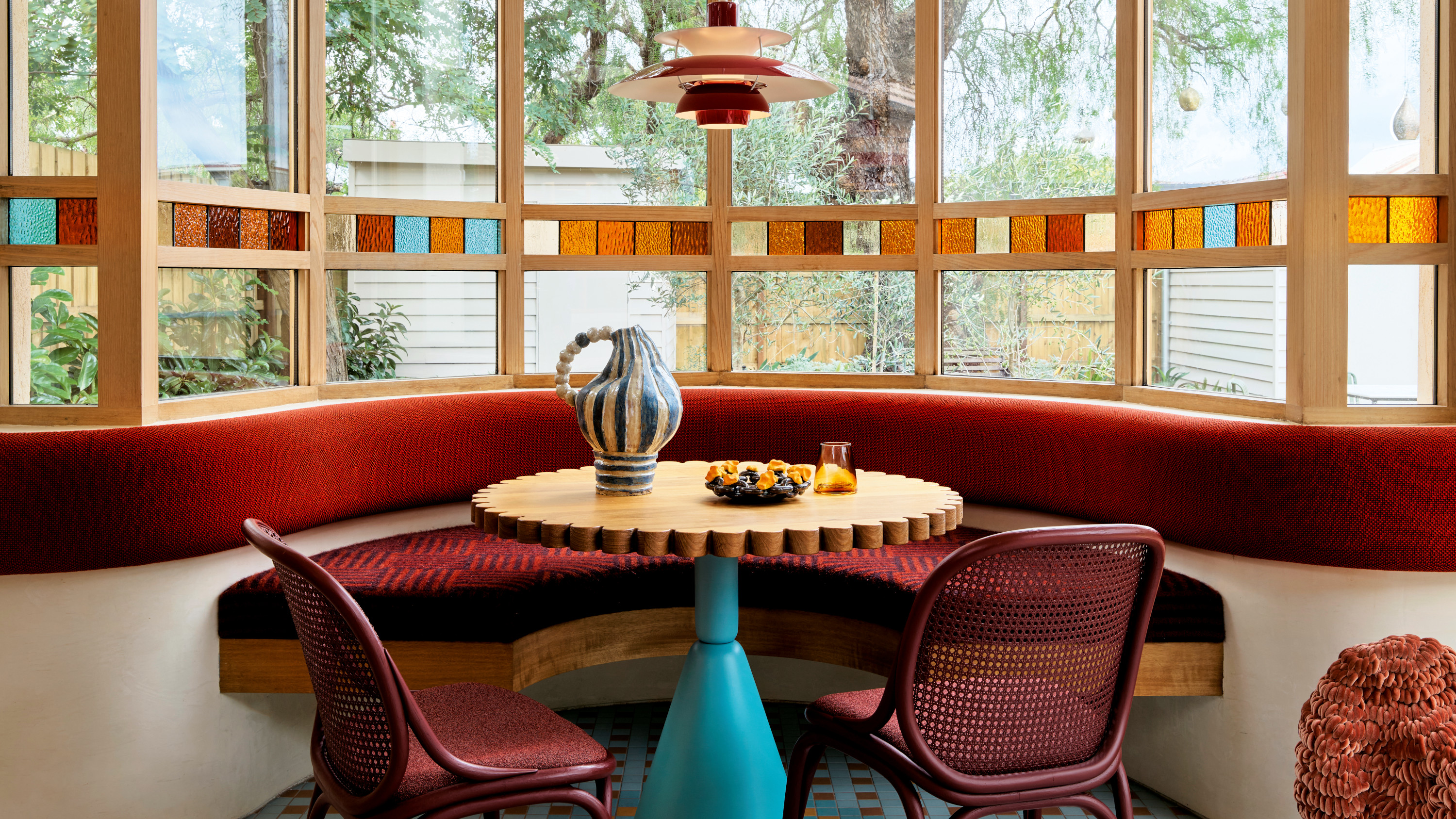
Stained glass windows are an age-old artform, but the craft is a surprising match for contemporary spaces thanks to updated shapes, patterns and palettes – plus, designers are increasingly dabbling with color drenching by using large planes of tinted glass to flood interiors with an energizing glow.
A renewed interest in colorful glass accents makes new interpretations of stained glass all the more exciting: think experimental geometric patterns and lighter colors. Designers also take a more minimalist approach by enhancing interiors with uninterrupted tinted or filtered glass features, installed anywhere from room dividers to interior windows, shifting the entire mood of your interior design scheme.
‘Tinted glass adds visual interest to spaces by diffusing light and creating an ethereal glow,’ explains Fiona Stone, design development director at Dublin's Róisín Lafferty. ‘Traditionally used for windows and doors to allow light to filter through, glass – whether tinted, textured or patterned – has become a lot more versatile in its application.’
At the end of the day, colorful glass accents can transform light and ambience – here are just a handful of ways to add brilliance to your space.
1. Use jewel tones
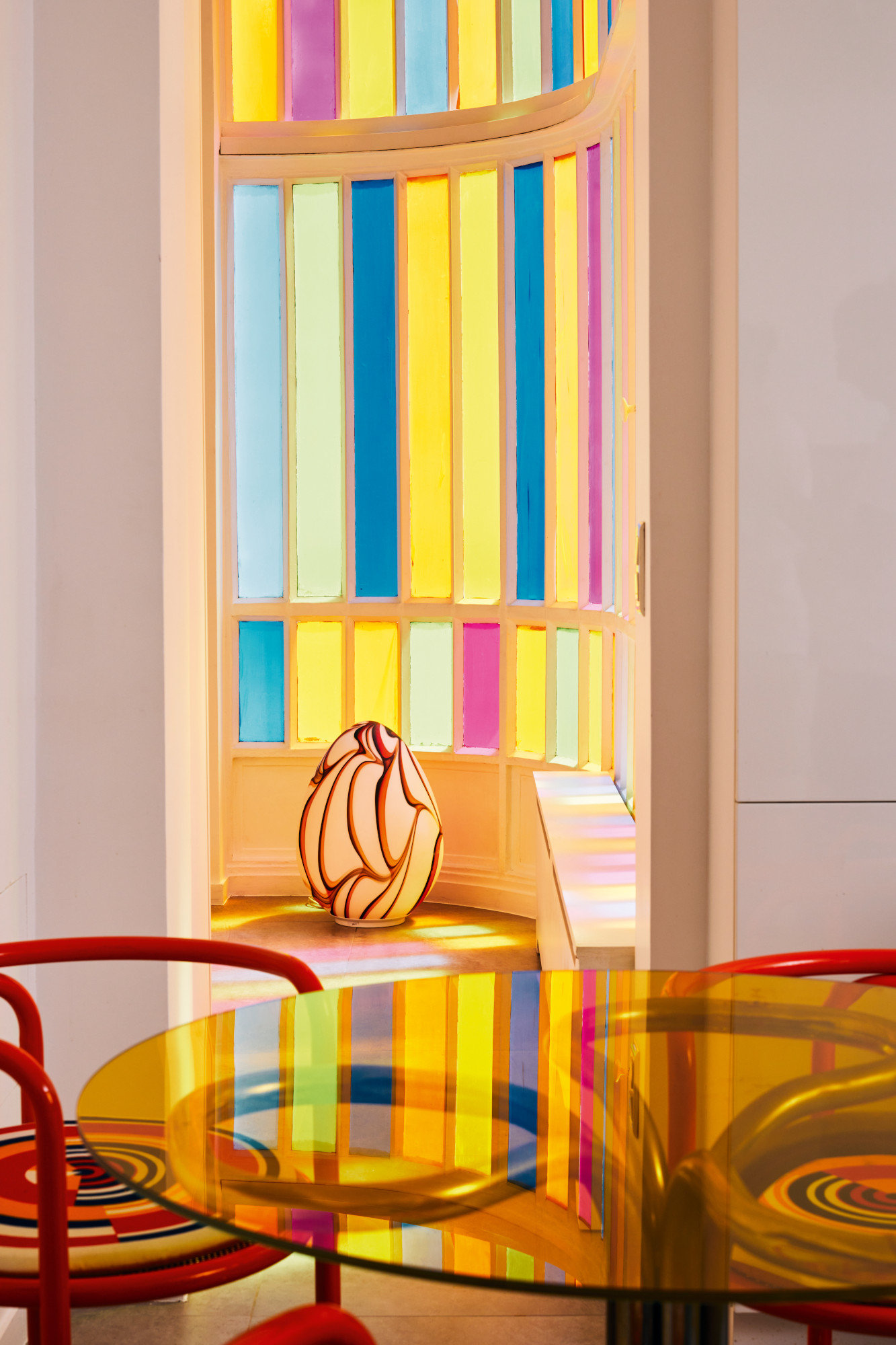
Paris’ multidisciplinary studio Uchronia went multifaceted with this gem-inspired Haussmannian flat, designed for a jewelry designer and her partner. While a playful palette of jewel tones abounds throughout the entire apartment, it shines brightest en route to the kitchen thanks to a rounded, rainbow-hued window.
‘If there’s one thing I really love about this apartment, it’s the vitrail that leads to the kitchen,’ says founder Julien Sebban, noting how his studio customized the existing architectural feature with polychromatic glass. ‘This creates a place of passage that’s quite timeless, like a little sanctuary.’
Get the look
The next best thing to this colorful window design? Lining your windows with beautiful colored vases and jugs to catch the light.
2. Impart a modern glow
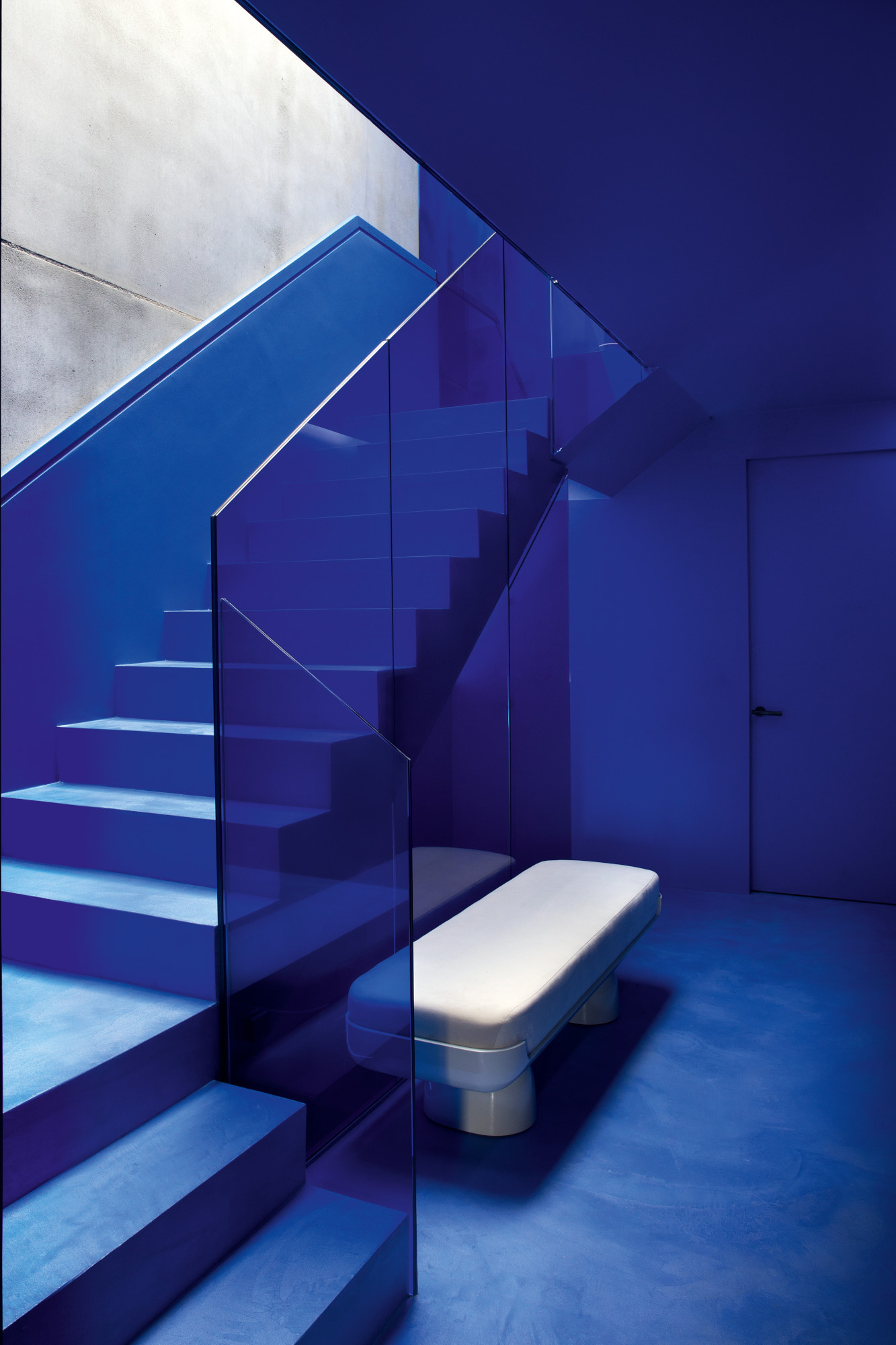
The central staircase of this Dublin home was always going to be a focal point – it spans four levels, after all. But Róisín Lafferty went one step further, enveloping nearly every surface (walls, floors, ceilings) in cobalt blue, even across a glass railing that radiates electric color on a whole other level.
‘The use of tinted blue glass for the staircase balustrade further enhances this effect, echoing and spreading from the core to create the impression of a growing blue cube,’ says Fiona Stone. ‘This installation serves as a dramatic visual centrepiece in each zone, saturating the space with its striking blue hue.’
3. Warm up your scheme
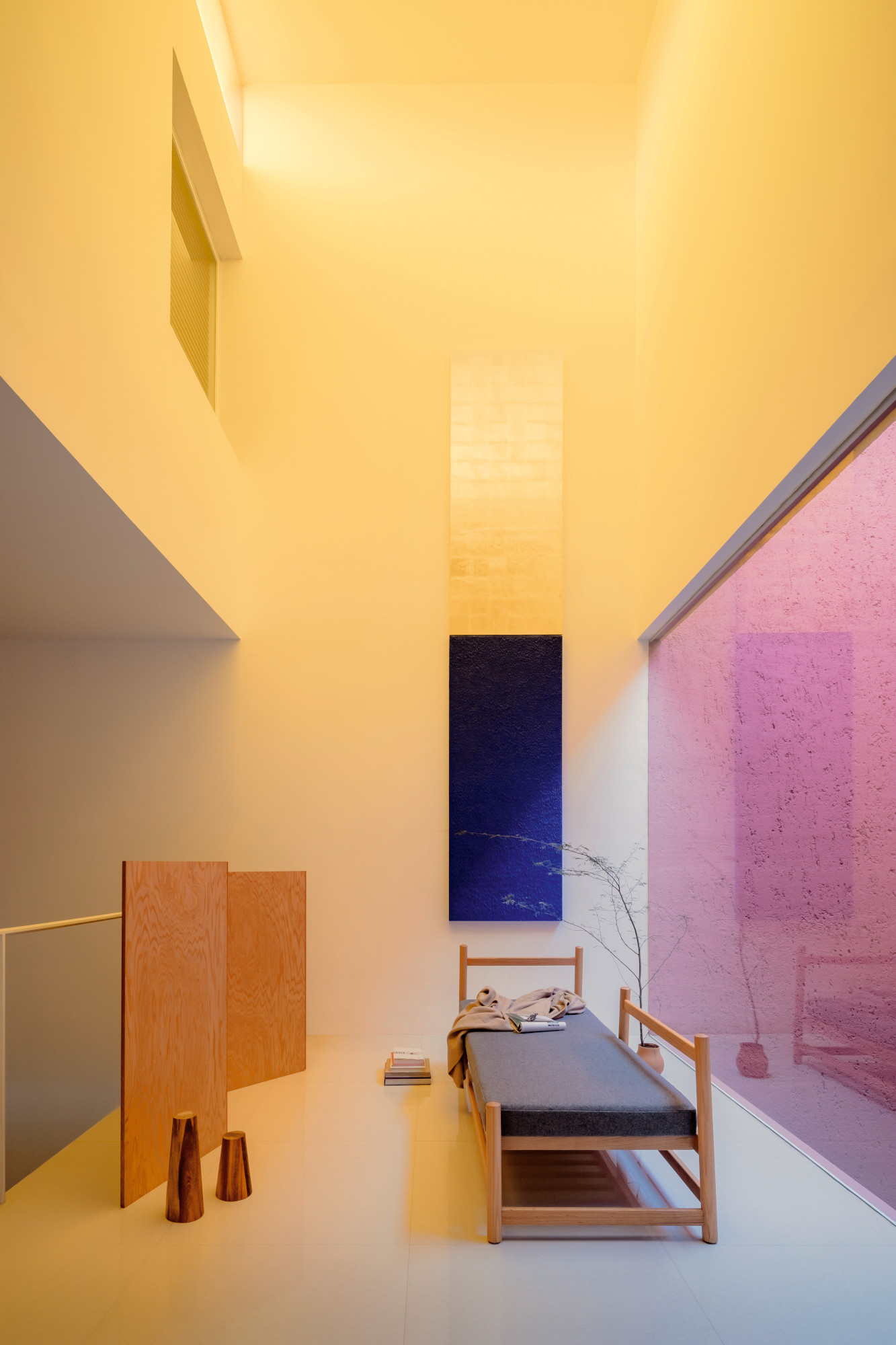
While most tinted or stained glass is purposefully within view, this project in Mexico by César Béjar Studio takes a different approach: a thin layer of amber paper tints a window in the uppermost part of the house. While the window is out of sight, it adds warmth to the home by flooding lower levels with yellow light.
For César's studio, this enhanced color represents the mood of design today. ‘Current architecture implicitly bases its experience on natural and less industrialized materials, resulting in atmospheres naturally warmer for human life,’ he says, noting how tinted glass helped his studio shift the tone and ambience of the minimalist home.
4. Tell a story with color
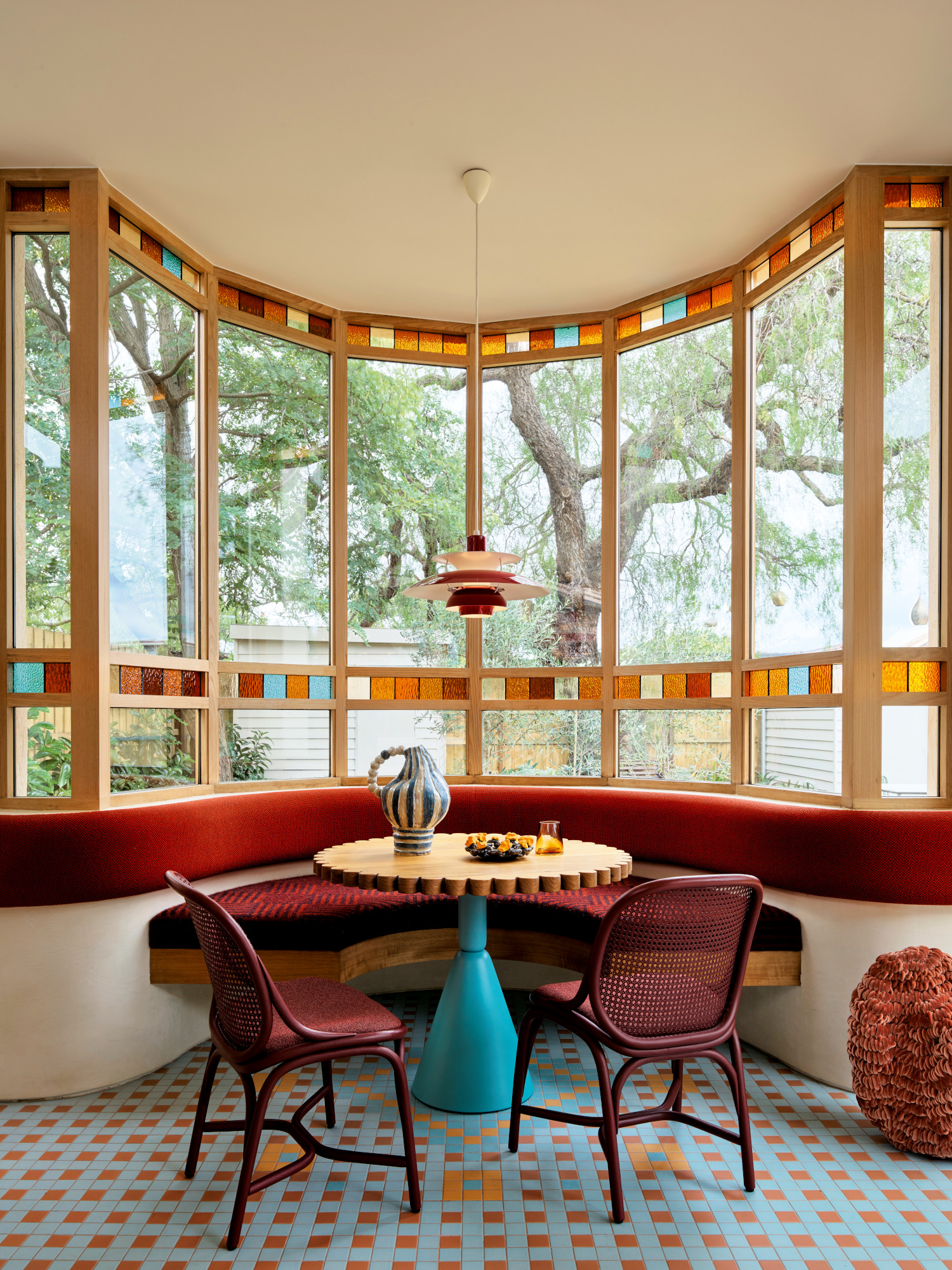
It’s plain to see, but perhaps easy to forget, that you can tint glass in a variety of contemporary hues that match the color scheme of your interior. This was the case for YSG Studio, which had full control with a new living room extension envisioned for an original Victorian in Melbourne.
‘One of the homeowners is Egyptian, so the coloured panes perfume the kitchen [and] dining area with the aromatic shades of turmeric and saffron, also reflecting the colours of the tiled floor,’ says Yasmine Ghoniem, director at YSG Studio.
5. Zone with a colorful screen
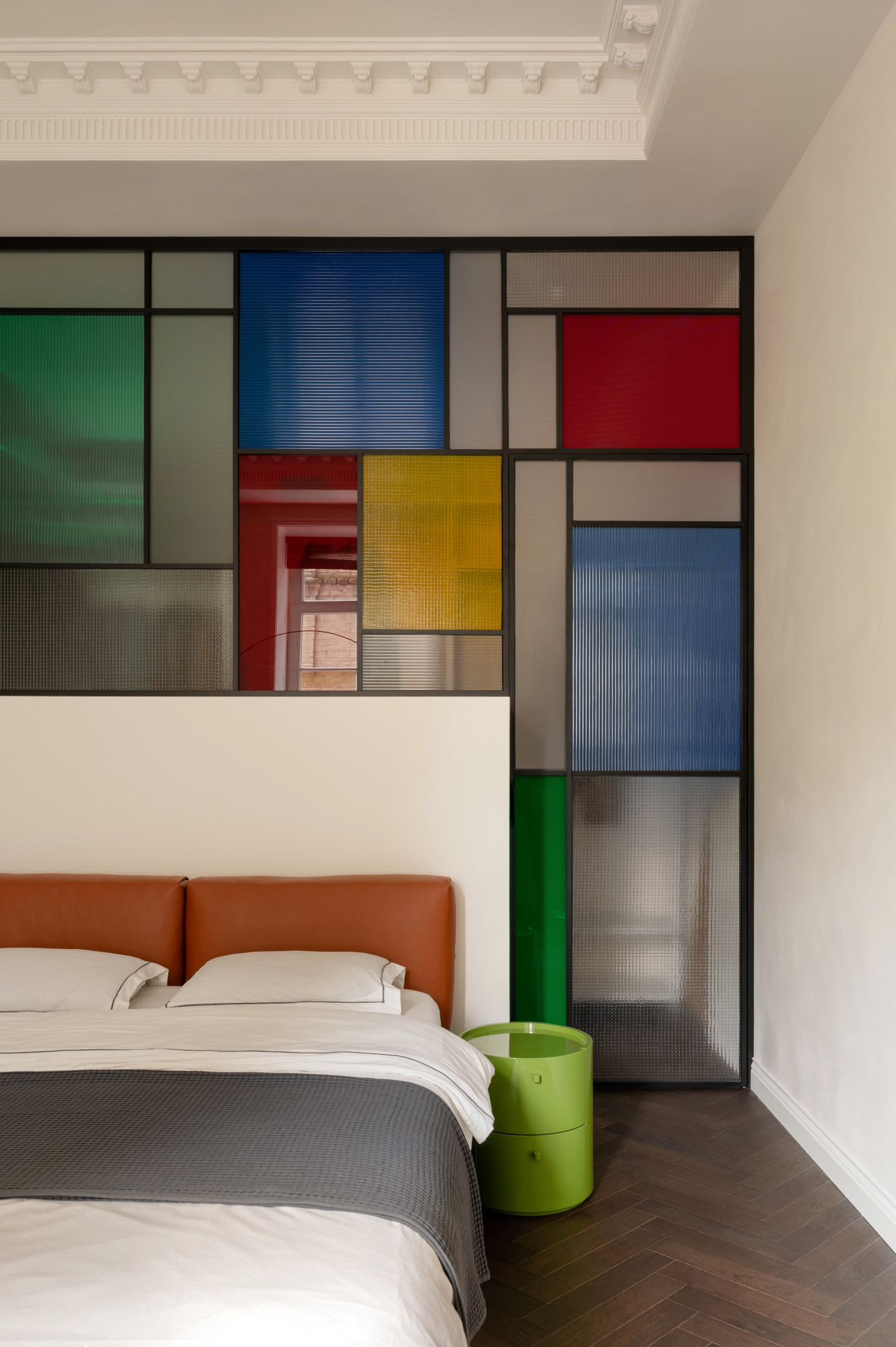
To zone off a walk-in closet, architect and interior designer Maksym Dietkovskyi of Kyiv studio Modektura used textured glass to create an abstract wall and door behind the headboard. While colorful geometric shapes add loads of visual interest, it keeps the visual weight light and airy.
‘In our case, we needed to conceal the wardrobe while still allowing natural light to pass through, and in the evening, to benefit from additional lighting coming from the wardrobe,’ explains Maksym, noting how the stained glass panels look just as retro as relevant in the modern bedroom. ‘Fluted glass perfectly accomplished this task.’
6. Add a warm filter to a bathroom
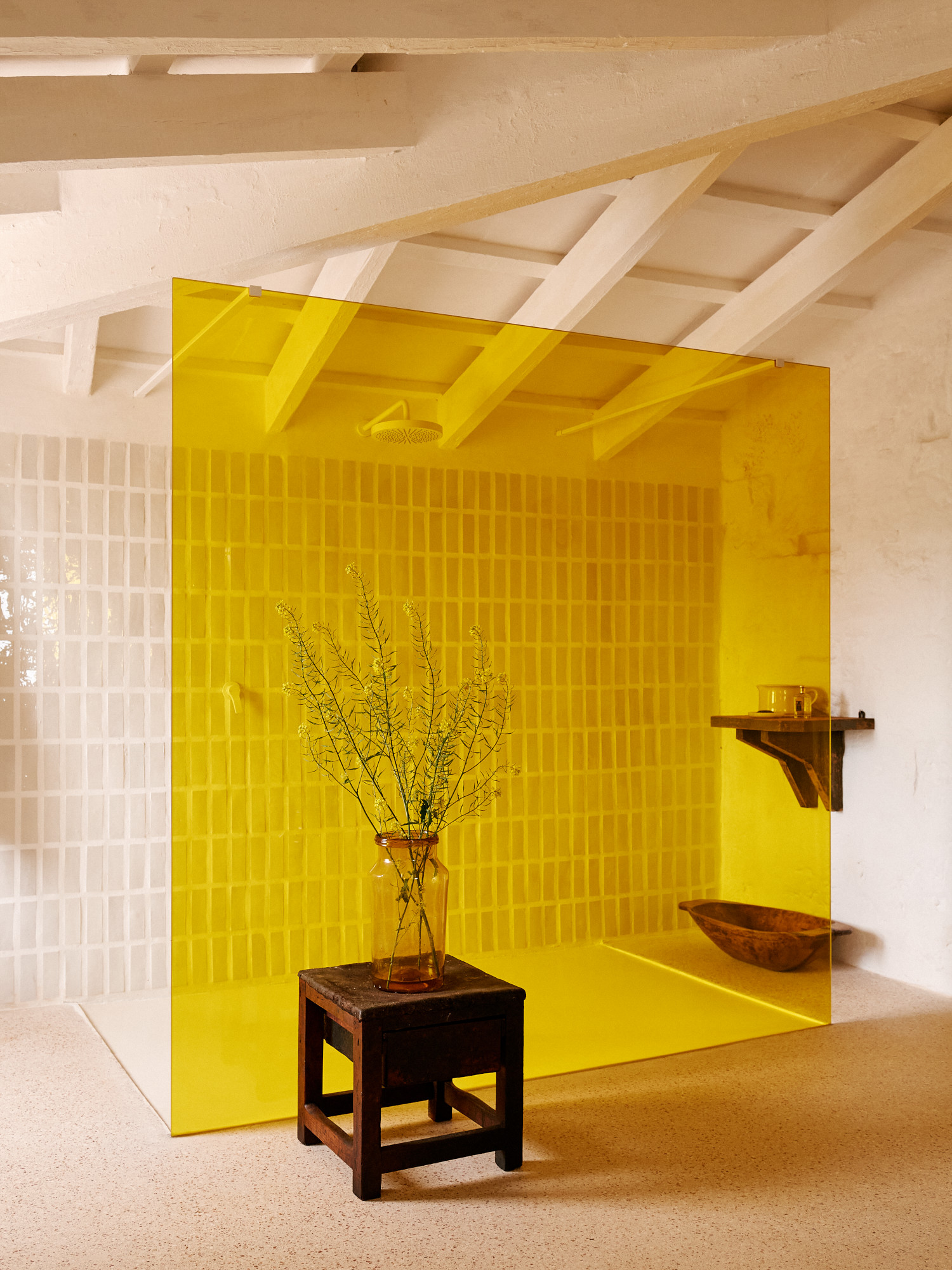
Channeling the sun-drenched environment on its doorstep, a yellow-tinted shower screen creates a glowing atmosphere for this brilliant bathroom in Spain’s Balearic islands. ‘The yellow glass behaves like a lens, bestowing a shade of modesty to the shower space, but also to add interest to a minimal interior,’ explain Parisian studio Laplace’s Luis Laplace and Christophe Comoy, who happen to call this residence home. ‘It also reflects the golden light in Menorca, which softens the space and is gentle on the eye – whilst also effectively segmenting the room.’







